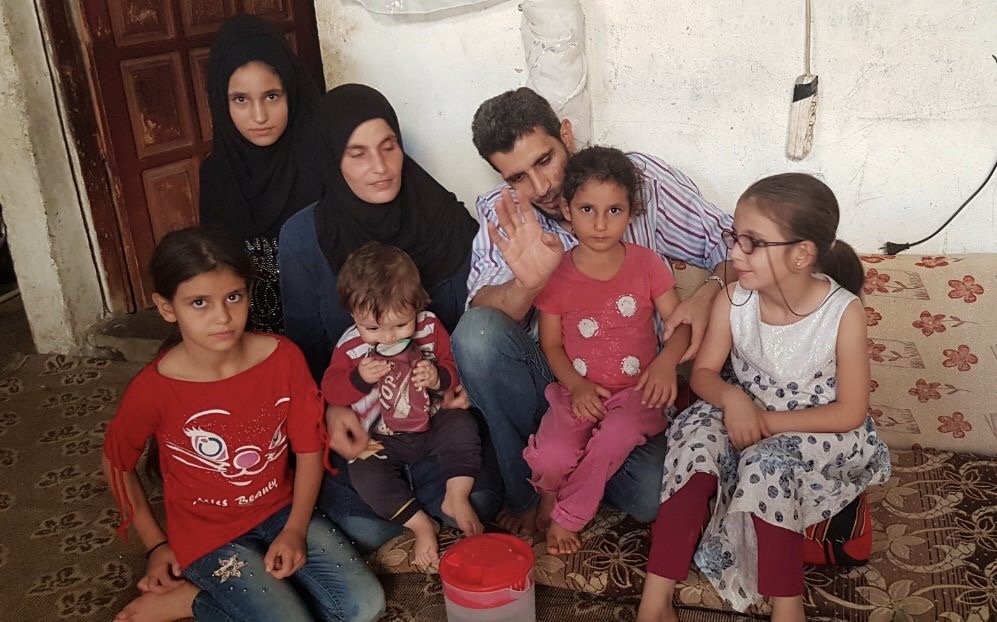Plaster School Stories
The everyday life of the children we see around us is punctuated by school. We see them in the morning in the streets with their school bags and colourful clothes. An image that is also part of our everyday life. An image that exudes normality. A term that is often used incorrectly, but which sounds absolutely right here, in line with the UN Convention on the rights of children and adolescents, which recognises the child's right to education.
Everyday life may seem boring in some cases, but it is actually a great security. It is a refuge that we know. And school, besides being everydayness, is also community and curiosity. It is a refuge that both protects and builds.
This is why the Plaster School is so special, because it provides this normality furnished with friendship and curiosity to children who, in spite of themselves, live a reality that is not normal. Children who have had to escape from their normality. And as in all schools, there are the lively children, the shy children, the children suffering from certain illnesses, the children who are afraid, the children who have a thirst for learning and those who have a flame that needs to be fed.
And so it is that at Plaster we find Juri, who arrived when she was 7 years old, bringing with her a lot of shyness and little self-confidence. With the help of the school psychologist, who, among others, agreed on a rewarding path in small things with the other teachers, Juri gained more and more confidence and learned to read and write correctly, feeling more secure.
And then there is Omar, seven years old. In his case, great psychological work and an active and constant collaboration with the family has led to excellent results in dealing with his dyslexia and making him increasingly scholastically autonomous. Great credit is due above all to him, stubborn and determined to learn by accepting his mistakes.

When Sultan arrived at Plaster School, the teachers immediately noticed that there was something behind his quietness and shyness. The fact that he did not participate in lessons and remained passive prompted them to contact his mother immediately and it became clear that his behaviour was due to very poor hearing. Since he did not yet have the proper permits, his family did not have the right to access public facilities and did not have the financial means to have him operated on in a private facility. EveryChildIsMyChild decided to bear the costs of the surgery.
Reem came to Plaster when she was ten years old. She had no schooling and did not even know how to use a pen.
With the help of the psychologist and a lot of good will on her part, she managed to
to integrate and after three years at Plaster she enrolled in the public school with only one year left on her regular course. The report from the Turkish teachers rewarded the great remedial work so much that it saw Reem excel in most subjects.
With Raya, who arrived when she was eight years old, the Plaster School team took on an even bigger challenge. Raya has a heart condition and lives with a pacemaker. Due to a crisis she lost
almost totally the use of speech and hearing. Attempts to support her with an implant to help her with her hearing yielded little result.

Every day, for an entire school year, Raya had a one-hour appointment with the school psychologist. She has regained the ability to speak and her attention span has improved to the point where she is enrolled in the first class of the public school where, also thanks to a support teacher, she is on a regular course.
The mother is grateful to all the teachers for this great little miracle.o.
And then there is Safia, who arrived at Plaster at the age of nine. She is autistic and prior to entering the school had not received any care even though her parents followed her correctly. After a part-time placement, she now attends school full-time. She is quite a selective child and only shows interest and attention for what she likes.
The decision to teach her English, because she liked it, was a successful one, and from this it was also possible to interest her in Arabic and other subjects.
The Plaster children are many. Each of their stories is special and all of their special stories meet at school in the sign of an everyday life that smells of the future.



